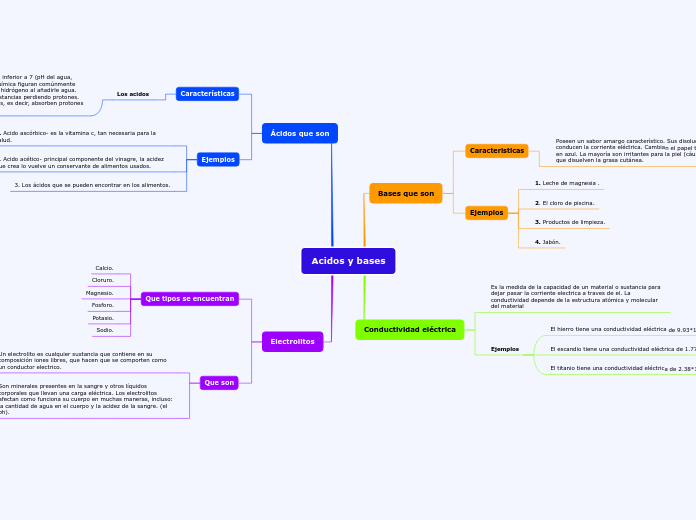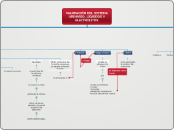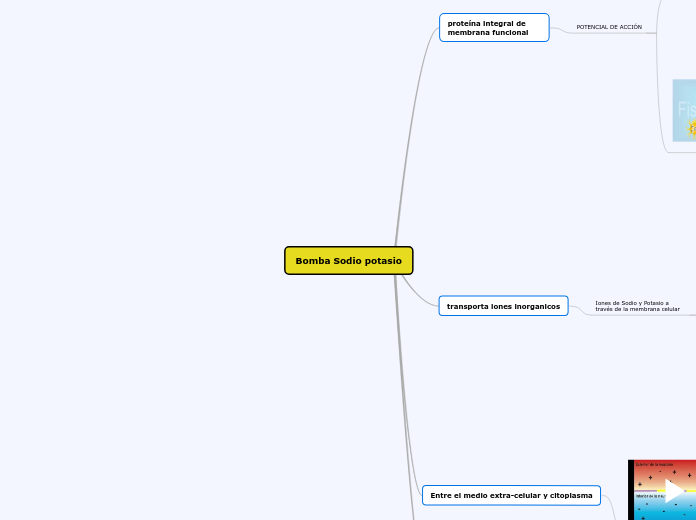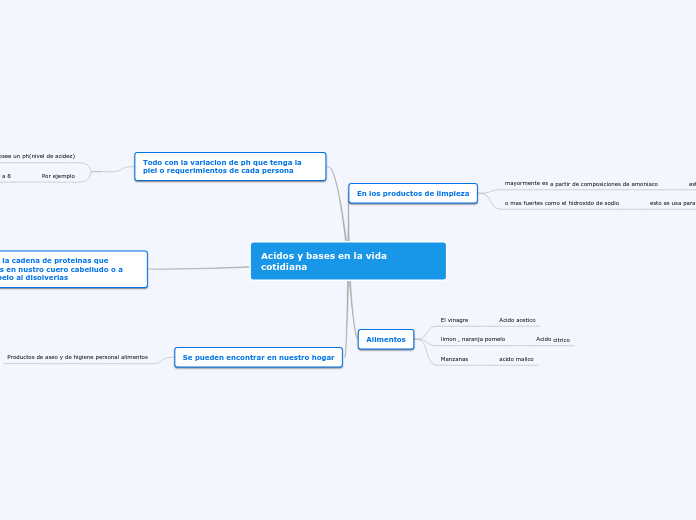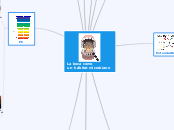Acidos y bases
In linguistics, syntax is the set of rules, principles, and processes that govern the structure of sentences in a given language, usually including word order.
Electrolitos
A compound sentence is a sentence that has at least two independent clauses joined by a comma, semicolon or conjunction. An independent clause is a clause that has a subject and verb and forms a complete thought.
Que son
Create your own compound sentences, using the coordinators above.
Son minerales presentes en la sangre y otros líquidos corporales que llevan una carga eléctrica. Los electrolitos afectan como funciona su cuerpo en muchas maneras, incluso: la cantidad de agua en el cuerpo y la acidez de la sangre. (el ph).
Un electrolito es cualquier sustancia que contiene en su composición iones libres, que hacen que se comporten como un conductor electrico.
Que tipos se encuentran
When independent clauses are joined with coordinators (also called coordinating conjunctions), commas and semicolons, they do more than just join the clauses. They add meaning and flow to your writing.
Sodio.
Potasio.
Fosforo.
Magnesio.
Cloruro.
Calcio.
Ácidos que son
A complex sentence is a sentence that contains an independent clause and one or more dependent clauses.
An independent clause can stand alone as a sentence, but a dependent clause even though it has a subject and a verb cannot stand alone.
An appositive clause follows another noun or noun phrase in apposition to it; that is, it provides information that further identifies or defines it.
3. Los ácidos que se pueden encontrar en los alimentos.
2. Acido acético- principal componente del vinagre, la acidez que crea lo vuelve un conservante de alimentos usados.
1. Acido ascórbico- es la vitamina c, tan necesaria para la salud.
Características
A predicative clause may be introduced by conjunctions - that, whether, whether... or, as, as if, as though, because, lest, the way - or connectives.
The latter may be conjunctive pronouns - who, whoever, what, whatever, which - or conjunctive adverbs - where, wherever, when, whenever, how, why.
Los acidos
Los ácidos son sustancias de pH inferior a 7 (pH del agua, considerado neutro), en cuya química figuran comúnmente grandes cantidades de iones de hidrógeno al añadirle agua. Suelen reaccionar ante otras sustancias perdiendo protones. ... Suelen ser potentes oxidantes, es decir, absorben protones del medio circundante.
Conductividad eléctrica
El titanio tiene una conductividad eléctrica de 2.38*10
El escandio tiene una conductividad eléctrica de 1.77*10
El hierro tiene una conductividad eléctrica de 9.93*10
Es la medida de la capacidad de un material o sustancia para dejar pasar la corriente electrica a traves de el. La conductividad depende de la estructura atómica y molecular del material
Bases que son
Ejemplos
Traditional grammar defines the object in a sentence as the entity that is acted upon by the subject.
4. Jabón.
3. Productos de limpieza.
2. El cloro de piscina.
The indirect object identifies the person/thing for whom/which the action of the verb is performed.
The indirect object is usually a person or a thing.
1. Leche de magnesia .
The direct object is the receiver of the action mentioned in the sentence.
Caracteristicas
The subject of a sentence is the person, place, thing, or idea that is doing or being something. You can find the subject of a sentence if you can find the verb.
Ask the question, 'Who or what 'verbs' or 'verbed'?' and the answer to that question is the subject.
Poseen un sabor amargo característico. Sus disoluciones conducen la corriente eléctrica. Cambian el papel tornasol rojo en azul. La mayoría son irritantes para la piel (cáusticos) ya que disuelven la grasa cutánea.
